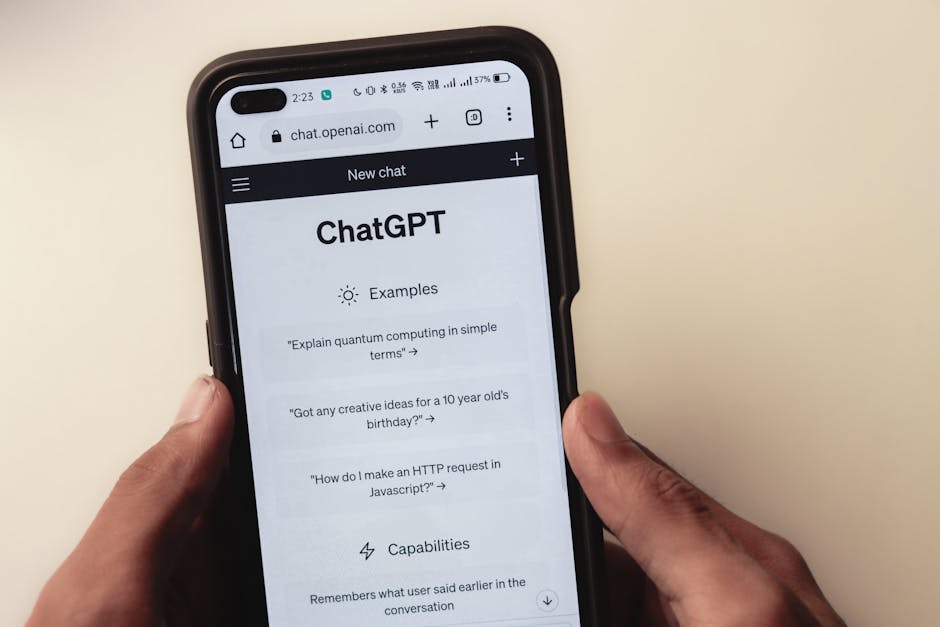ChatGPT Users Risk Unintentional Data Exposure in Search Results: 2025 Analysis
ChatGPT users may be unknowingly sharing snippets of their private conversations in search engine results, a concerning trend emerging in 2025, according to multiple reports. This development raises significant privacy concerns and highlights the challenges of balancing user experience with data security in the rapidly evolving landscape of AI-powered chatbots. The implications extend beyond individual users, impacting businesses and regulators alike.
The Mechanism of Unintentional Data Leakage
Early in 2025, several instances surfaced where fragments of ChatGPT conversations appeared in Google search results. Initial investigations suggest that this isn’t a deliberate data breach by OpenAI, but rather an unintended consequence of how users interact with the platform and how search engines index information. Many users copy and paste prompts and responses, inadvertently making private conversations publicly accessible if those text snippets are indexed. The issue is further complicated by the dynamic nature of the internet, where data can spread rapidly and unpredictably.
The Role of Search Engine Indexing
The indexing practices of search engines play a crucial role in this data exposure. Search engine crawlers constantly scan the web, collecting information to build their indexes. If a user shares a ChatGPT conversation on a publicly accessible website or social media platform, the search engine might index it, making parts of the conversation searchable. The speed and scale of this process make it difficult to contain the spread of potentially sensitive information once it’s online. Understanding these indexing mechanisms is key to mitigating the risk.
Impact on User Privacy and Data Security
The unintentional exposure of ChatGPT conversations represents a significant threat to user privacy. Many users share sensitive personal and professional information during their interactions with the chatbot. This information could include financial details, medical records, or confidential business strategies. The unauthorized disclosure of such data could lead to identity theft, financial fraud, or reputational damage. This risk underscores the urgent need for clearer user guidelines and stronger data protection measures from OpenAI and other AI service providers.
The Difficulty of Data Removal
Once information is indexed by search engines, removing it completely is incredibly difficult. Even if the original source is taken down, copies may already exist across the internet. This phenomenon highlights the persistence of online data and the challenges in controlling its dissemination. The difficulty of removal significantly increases the potential harm of unintentional data leakage. Efforts to mitigate this require collaboration between AI developers, search engines, and users.
The Broader Implications for Businesses and Industries
The implications of this data exposure extend beyond individual users. Businesses utilizing ChatGPT for internal communication or customer service also face risks. Confidential business strategies, customer data, or intellectual property could inadvertently be exposed, potentially causing significant financial losses or competitive disadvantages. The vulnerability underscores the need for increased vigilance and careful consideration of data security practices when integrating AI tools into business operations. The reputational damage from a data breach could significantly outweigh the benefits of using AI chatbots if security isn’t prioritized.
Emerging Regulatory Landscape
Governments worldwide are actively developing regulations surrounding AI and data privacy. The potential for unintentional data leakage through AI chatbots will likely become a focal point in these regulatory discussions. New laws and standards may be implemented to address this issue, requiring enhanced data security protocols, stricter user consent mechanisms, and clearer guidelines on data handling for AI companies. Compliance with these emerging regulations will be crucial for businesses leveraging AI technologies.
Mitigation Strategies and Future Directions
Several strategies can mitigate the risks associated with unintentional data leakage from ChatGPT conversations. OpenAI could implement more robust privacy settings, allowing users to opt out of having their conversations indexed. They could also develop techniques to automatically redact sensitive information before making data available publicly. User education is also critical; users need clear instructions on the potential risks of sharing information within the chatbot interface and on how to avoid unintentional data exposure.
Key Takeaways: 2025 Data Exposure Trends
- Increasing incidents: Reports of ChatGPT conversations appearing in search results increased sharply throughout 2025.
- Data Persistence: Removing indexed data proves exceptionally challenging, increasing the longevity of exposure.
- Regulatory Scrutiny: Governments are intensifying regulatory efforts focusing on AI data security and user privacy.
- Industry Response: AI developers are under pressure to enhance privacy features and improve data handling protocols.
- User Awareness: A critical need exists for educating users on data security risks associated with AI chatbots.
Conclusion: A Balancing Act
The unintentional sharing of ChatGPT conversations in search results presents a significant challenge in 2025. It highlights the inherent tension between the benefits of AI-powered chatbots and the need to protect user privacy and data security. Addressing this issue requires a multi-pronged approach, including technical solutions from AI developers, robust regulatory frameworks, and increased user awareness. Failure to adequately address these concerns could have far-reaching consequences, impacting individual users, businesses, and the broader digital landscape. The evolution of AI necessitates a continual reassessment of data security practices to ensure responsible innovation.

